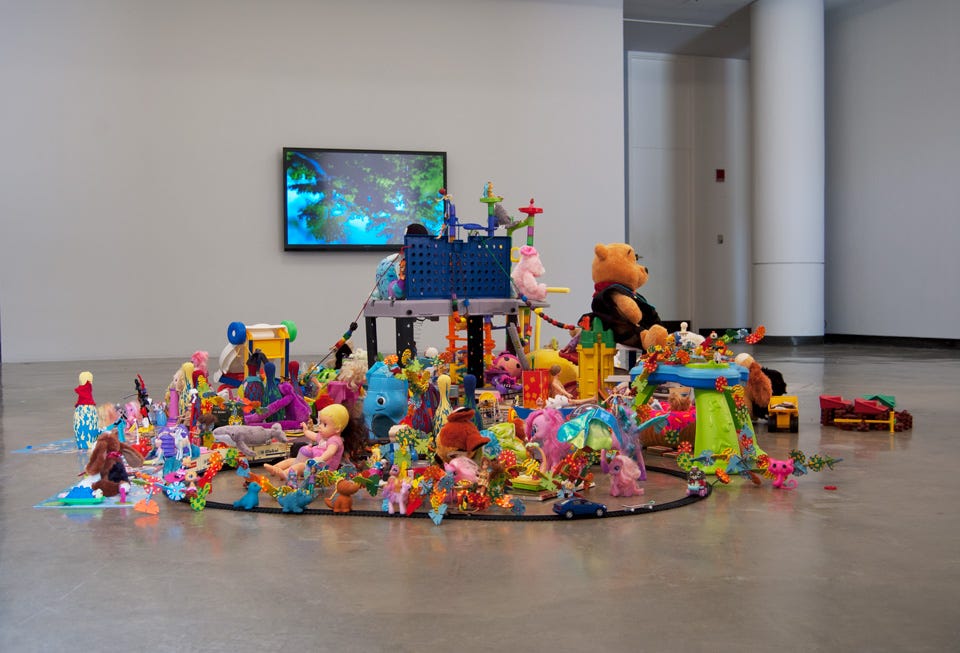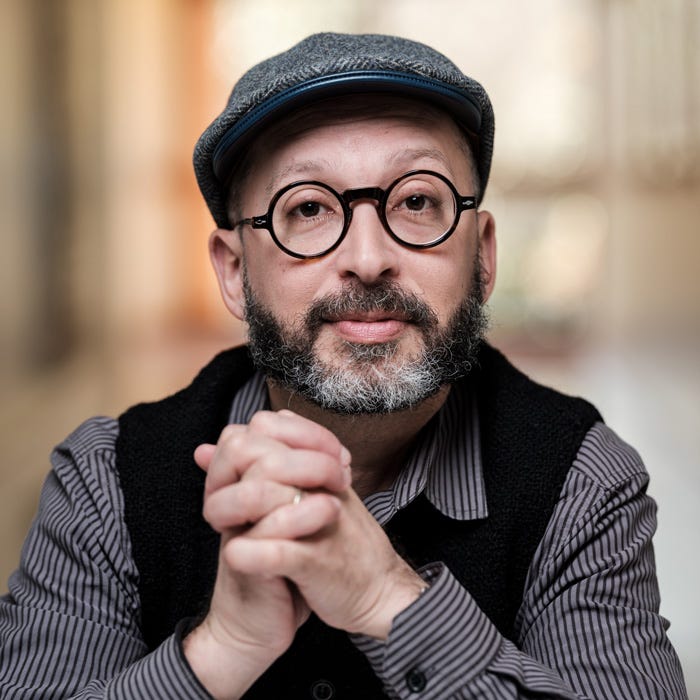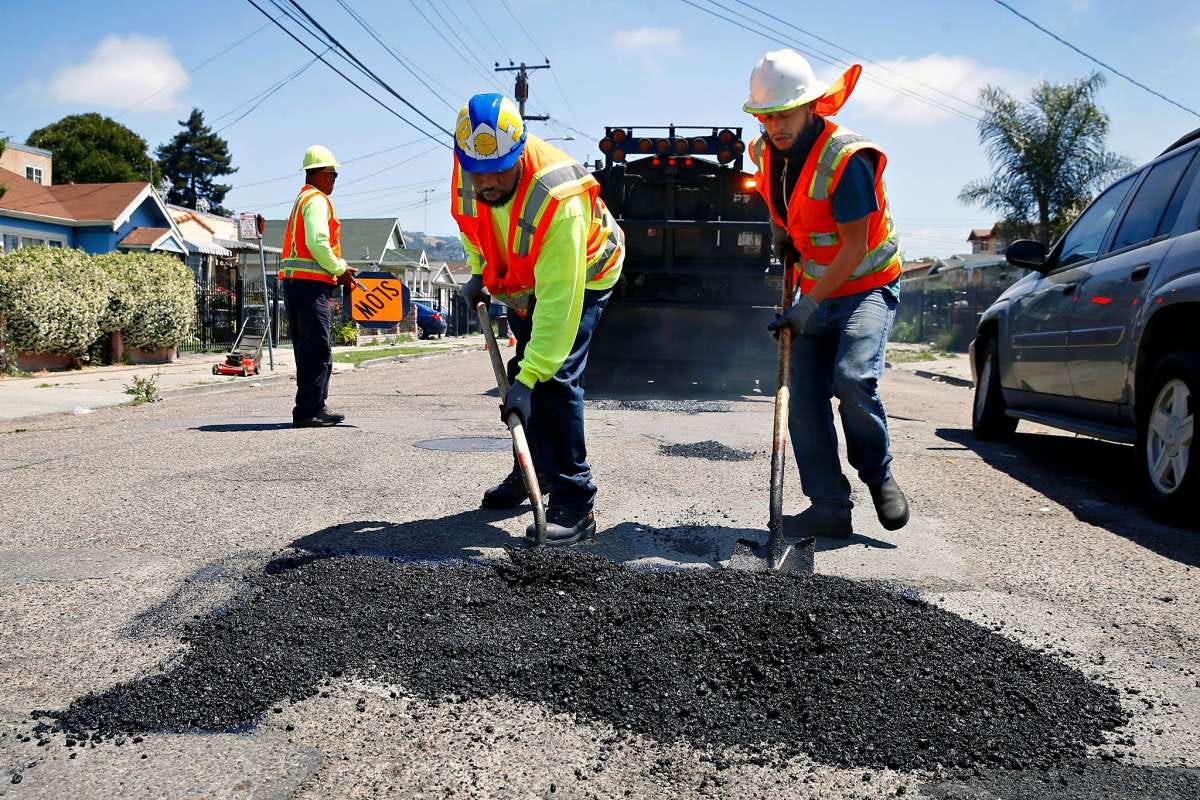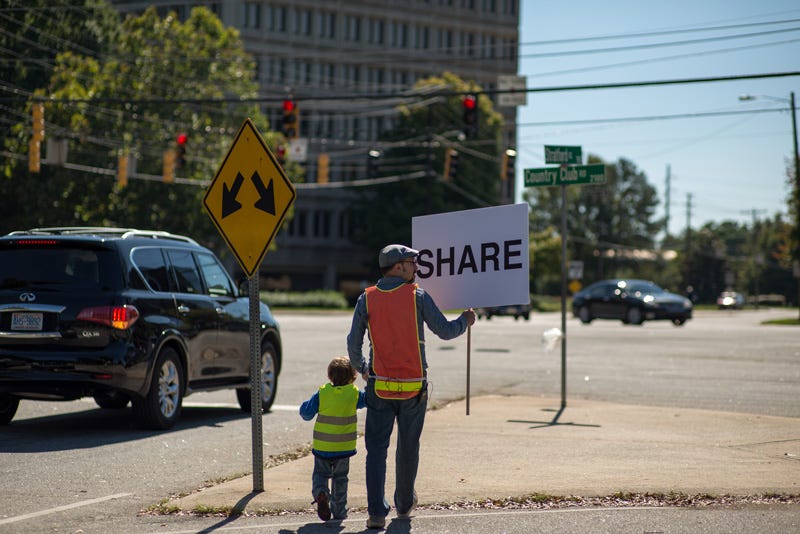Each month in the Artists 4 Democracy newsletter, we share actions that you as an artist can take to help strengthen our democracy as well as legislation in the works. We also profile an artist whose work reflects democratic values.
ACTION ITEM
Paying your taxes is patriotic
When you ask Americans, “what does it mean to be a good citizen?” one of the top two answers might surprise you:
Voting in elections
Paying all the taxes you owe
In fact, Democrats and Republicans agree on this. Half of all Americans believe what they pay in taxes is about right, or even too little, considering what they get in return. People with higher incomes are more likely to think they pay too much, but there’s a growing chorus of millionaires who argue the super-rich should be made to pay higher taxes and the money used to reduce inequality, which would strengthen our democracy.
On top of that, we now have 40 years of evidence that the Republican Party’s beloved “trickle down” theory is nothing but magical thinking. The data show that tax cuts lead to economic declines and tax increases boost the economy. Which has to make you wonder, why are they still obsessed with cutting taxes? (And where do they get some of their crazier schemes to duck their civic responsibility?)
To be sure, nobody actually likes paying taxes. But people who respond to every government initiative to help Americans get back on their feet with the mantra, “Cut taxes!” are like little kids stamping their feet and whining about having to eat their vegetables.
They’re also trying to distract us from engaging in serious policy discussions about what government should spend its money on. Should we invest in schools or prisons, nurses or SWAT teams? If you care about the answer, don’t fall for the no-taxes smoke-and-mirror show. Get involved in the struggle to make sure your government spends its money on what matters to you.
Chief Justice of the Supreme Court Oliver Wendell Holmes once wrote, “Taxes are what we pay for civilized society.” Whether you’re scrambling to file your taxes today or handled it weeks ago, take a moment to reflect on the fact that you’re doing your civic duty for the common good and for our democracy.
LEGISLATION YOU SHOULD KNOW ABOUT
American Jobs Plan (aka “The Infrastructure Bill”)
If you’ve driven on pretty much any American road lately, you know it’s time for some serious repairs. If you’ve lived through wildfires, floods, or drought in recent years, or even if you’ve just seen images of starving polar bears on social media, you know we need to clean up our energy systems, and fast. It’s clear by now that health care and education are critical parts of our infrastructure and need shoring up. We also need to make sure everyone in our country has access to clean drinking water and high-speed broadband internet.
America has underinvested in infrastructure for years. As a result, our infrastructure quality has fallen to #16 in the world, putting us behind Switzerland, Japan, and the United Arab Emirates. What investments we have made haven’t been shared equitably.
None of this is a secret or a surprise. Even that guy in Mar-a-Lago proposed spending $2 trillion on infrastructure, way back in March 2020. Now that Biden has proposed the American Jobs Plan that will invest—wait for it—$2 trillion in infrastructure, his political opponents are shouting about how we can’t afford it.
That’s ridiculous. Despite the economic impact of the pandemic, US gross domestic product in the first quarter of 2021 was more than $22 trillion dollars, which is even higher than it was in the fourth quarter of 2019, before the pandemic.
Opposition to this bill is ridiculous for another reason: investment in infrastructure creates jobs, which boosts the overall economy. Research has found that every additional dollar invested in infrastructure creates $3.82 in economic growth. Construction and manufacturing pay middle class wages and most of those jobs don’t require a college degree, so these will be opportunities for many of the people who’ve been hardest hit by the growth of the information economy. Well-paid workers will buy durable goods and take their families out to ball games and museums, which will have a ripple effect of creating more jobs. It’s a virtuous cycle in which we all lift each other up.
Our economy will rebound after COVID-19. If we take a laissez-faire approach and leave it to the market, we could have another jobless recovery like the one we had after the Great Recession. Instead, this infrastructure bill will help ensure that the coming recovery creates good jobs that pay living wages. It will also invest in our future by investing in child care and education. It will spread these benefits equitably to communities across the country, rebuilding failing infrastructure to benefit all of us in the long term.
If you think the American Jobs Plan is a good idea, tell your friends and your representatives in Congress.
ANOTHER ARTIST FOR DEMOCRACY
Joel Tauber
“Democracy implies an understanding that we’re all intertwined with each other.”
Perhaps one of the most important lessons of 2020 is that the only way we will fix America’s problems is by working together. The racial justice movement broke through because so many people spoke their truth and so many took collective action for themselves and for others. COVID-19 infection rates are finally declining because people are getting vaccinated. Elections were won because large numbers of people made phone calls, sent texts, wrote postcards and letters, gave money, helped cure ballots, and voted.
For artist Joel Tauber, caring for each other and for the common good is central to democracy. Our mythological narratives that say freedom is about pulling ourselves up by our own bootstraps alone belie the truth that no country, no system in the world, can survive without understanding our responsibilities to each other. For our society to function well we need doctors and teachers and people who build roads and bridges. We must help our neighbors, and we must engage with civic and political life.
“Democracy,” he says, “is only as strong as we are collectively.” When any one of us is suffering in a detention center, killed in the street by police, or goes hungry, this impacts all of us.
Every vote matters and every voice matters. For Tauber that is the starting point for democracy. If we want to build a better democracy, we need to make sure that everyone has enough to eat and quality health care, housing, and education. In a better democracy, we will care for those not just within our borders, but also those beyond. We will care for all inhabitants of the Earth, no matter their species.
These are issues Tauber has thought about and wrestled with most of his life. He spent 12 years studying Jewish philosophy and religion and had planned to become a doctor. Now an artist, filmmaker, and activist, his long reflection on ethics, environmentalism, and responsibility are still at the center of his work.
His projects include Sick-Amour, a heartbreaking celebration of a lonely, forlorn tree in the middle of a giant parking lot in front of the Rose Bowl Stadium in Pasadena, CA, and Border-Ball, a 40-day pilgrimage along the US-Mexico border during which he wore a red, white, and blue baseball uniform, played catch with people, and gathered their stories of life on the border.

But it is Tauber’s The Sharing Project that may be the most direct physical embodiment of his values. Through written stories, an art installation, and a 29-minute film, he explores the concept of sharing with his young son, Zeke, and in interviews with experts in the field. In the film, Tauber and his son visit a forgotten Socialist commune called Happyville in South Carolina where 50 Jews from New York lived and shared everything from 1905 to 1908.
As part of the installation, he invites visitors to bring something to share. The toys, canned goods, tools, and other objects people leave become a communal sculpture at the center of the space. At the end of the show they are invited to return and take an object from the sculpture to share with someone else.
Experiments like Happyville have been erased from history, he says, because they don’t fit our ideology as a nation. Walking through the area where these men and women lived their beliefs about sharing to the fullest, every day, Tauber felt a kinship with them and wanted to bring their story back into the light.
Artists have a special set of skills and tools that can be used for persuasion, which is both an opportunity and a responsibility. Look around yourself, Tauber says, and see what needs to be repaired or improved for the greater good, then create work that generates conversations and engages complex ethical issues. “My intent is to get people to think and facilitate action,” says Tauber. “These thoughts, conversations, and actions can lead to greater change.”
Sick-Amour can be seen on Kanopy; Border-Ball is screening May 17-20 at the Carmarthen Bay Film Festival in Wales. Learn more about Tauber’s work at his website: https://joeltauber.com.
Thanks for reading the Artists 4 Democracy Newsletter. Artists 4 Democracy promotes democratic and civic engagement by mobilizing artists to get involved in political action. Through voter registration drives, fundraisers, and events we seek to foster and protect our participatory democracy. In 2021, we’re focused on building a better American democracy, one centered on racial, social, and environmental justice.





